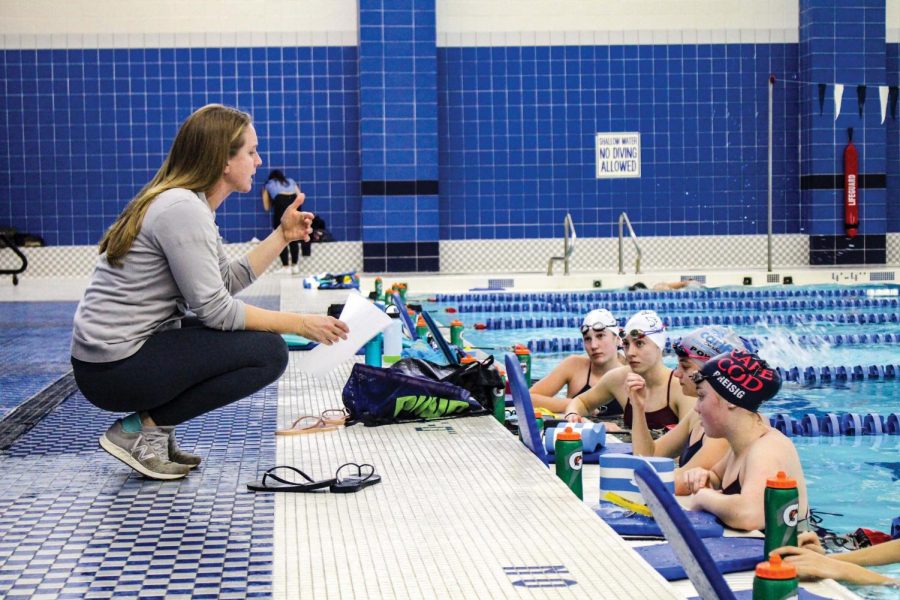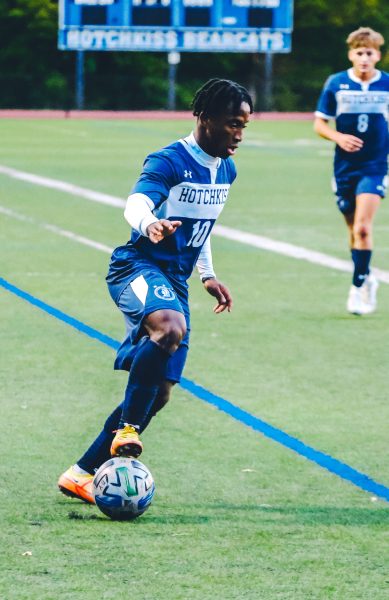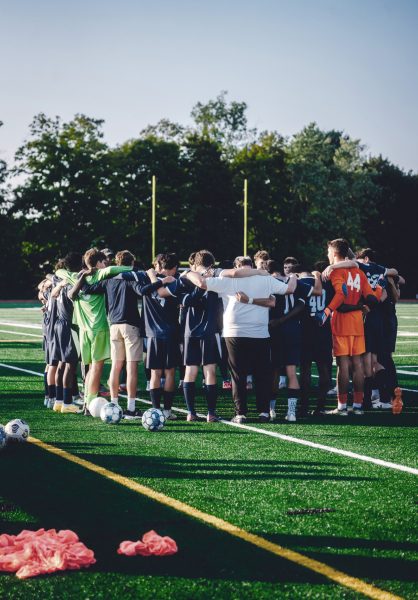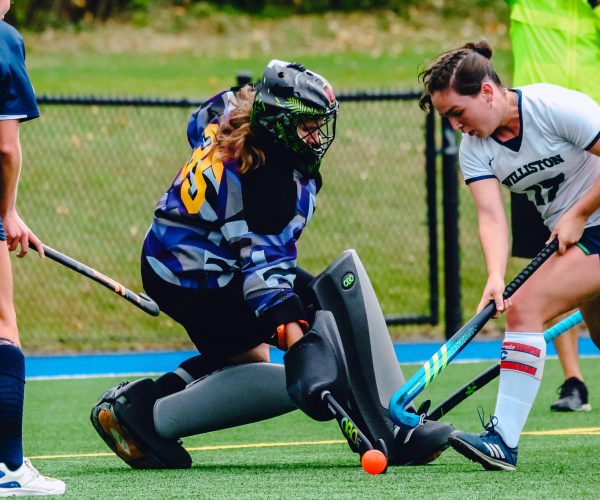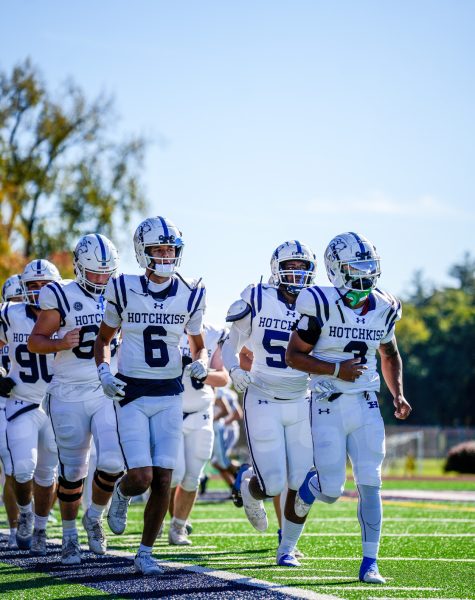Coach’s Corner: Michelle Repass
Coach Michelle Repass has been the Head Coach of Girls Swimming and Diving for the past five years.
Michelle Repass is Head Coach of the Girls Swimming and Diving team. Coach Repass swam at Southern Connecticut State University, where she captained the team in her Senior Year. She also holds experience coaching at both the prep school level and the club level. At Hotchkiss, she led the team to victory in the 2019 Founders League championships.
What are some of your goals for the team?
We had a lot of success last year, [since] we ended up winning Founders, which was super-exciting and the first time [the team] has ever done that. [The team wants] to build on [past successes] and grow in new ways for each individual swimmer and as a team. That’s an important goal for me and for [the team]. It’s [also] a smaller team this year, relative to what it has been in past years, [which] can provide some opportunities for cool connections, bonding, and things like that. I think that they swim faster when they are committed to their teammates in that way.
What has been your favorite coaching moment so far?
It’s hard to pick one moment, because there are some that are maybe the most obvious and they attract the most attention: people winning things, people getting best times, people breaking records. Those are certainly up there, but I’ve had the benefit in all of my coaching years of coach[ing] a lot of different levels of experience among the same age group, but also little kids. It’s so cool to see people learn how to do new things and that happens maybe even more frequently among newer swimmers. They’re learning a lot of new things all the time, [and] that’s a lot of collective moments. When people discover that they could do something that they didn’t know they could, that’s really exciting!
What do you see as the biggest challenges for the team this year?
There are certainly challenges with having a pared down team. Especially now, there’s a lot of sickness going around campus. Sometimes sickness spreads through, and if you have a small team, [then] there’s not a lot of wiggle room in terms of how you’re filling out your lineup. [The team is] pivoting from a year where [it was] a little bit bigger and really successful, so I think taking those challenges in stride and not being satisfied [with] doing the same old thing is significant.
How do you incorporate sports psychology into the team?
I’m lucky in my access [to sports psychology] in that my sister has her master’s [degree] in [that field]. She’s super-interested in it, [and] I’ve always been really interested in it, in part because when I was an athlete, my mind [often] got in my way. [It was frustrating] feeling like I was training better than I was racing, and it often felt like I was racing against my mind rather than other people in the water.
[The team] sometimes use meditation before practice. We’ve made it optional this year, because I like the idea of people opting-in to it. We’re so busy and rushing from thing to thing, and I think that meditation is really powerful, not just for trying to swim faster or dive well, but for overall wellness and happiness.
How do you balance recovery and training throughout the season?
[That balance is] a hard thing to gauge. I think I’m always trying to find this spot where they’re working really hard and really tired, but not completely broken down, and of course that’s different for everybody.
The biggest thing for me [is that] it’s hard when you’re an athlete and maybe [especially as] a young athlete to understand what your body needs. I try to talk to [the swimmers] a lot about that. I think it’s natural for athletes to turn to a coach and want the coach to say, if your shoulder hurts, [then] this is what you should do, you should work harder to keep swimming, you should kick more, kick less, or whatever it is. I often try to turn that on [the] swimmers. Getting in touch with your body [is important in] starting to understand the difference between soreness and pain. I just try to give them space [so that they can] judge that for themselves. If they need rest from there [then they should] go ahead and do that.
Aside from concerns about injury and illness and things like that, we saved up a lot of our resting for the end of the season. We’re not resting for dual meets; we’re swimming through those. Maybe our hardest practice of the day is not right before a big meet, but in my experience, I think we can get a lot out of the end of the season rest if we don’t take those rests all the time. [The team has] had…success in the past couple of years, especially at the end of the season in dropping a ton of time, so that’s usually my primary focus.
What is your main focus when coaching?
It’s hard for me, [since] swimming sometimes takes over my life a little bit, especially in the winter, and it’s easy to have that happen because we’re committed to what we want to do. Finding that balance, remembering why we’re doing this and what’s important allows me to try to come back to the little things that will get me to that end goal rather than [just focusing on] winning a particular meet.

